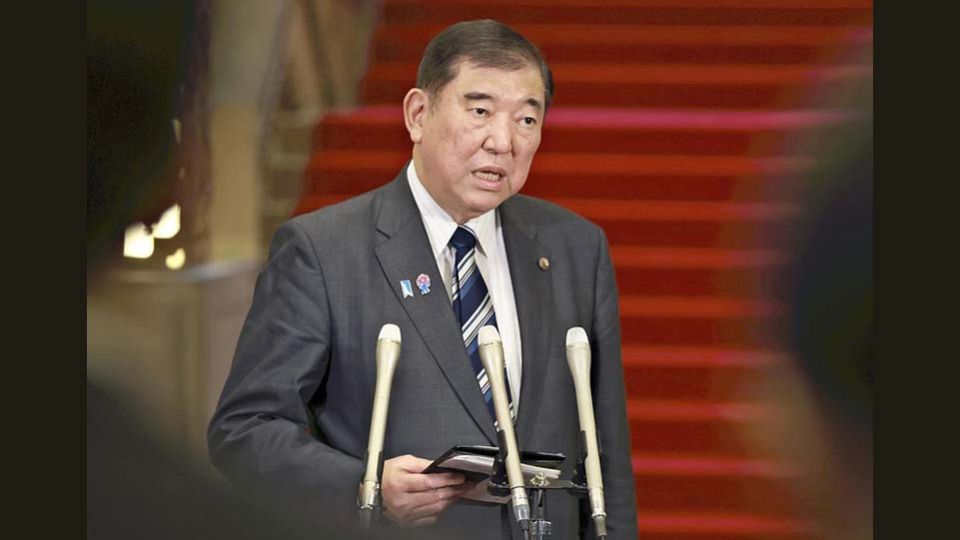May 5, 2025
TOKYO – The government decided Saturday to continue to press the United States to review its extra tariffs on Japanese automobiles during bilateral talks aimed at scrapping the Trump administration’s tariff measures.
Washington has excluded automobiles and other key items from the scope of the talks. In response, Tokyo has insisted that it will make no concessions as it presses for a complete overhaul of each of the duties imposed Saturday, including those on auto parts.
Prime Minister Shigeru Ishiba on the day met at the Prime Minister’s Residence with economic revitalization minister Ryosei Akazawa, who had just returned from the second round of ministerial talks in the United States, and instructed him on the government’s next steps based on the outcome of the talks.
“There is still a wide gulf between [Japan’s and the United States’] positions, and no common ground has emerged,” Ishiba told reporters after the meeting. “We are [pushing to negotiate] all the tariffs, including those on automobiles, steel and aluminum.” Ishiba also called the new duties on auto parts “extremely regrettable” and said Japan would “continue to demand that they be reversed.”
Akazawa likewise told the press that Tokyo “has consistently requested a total rollback of the tariff package, and [the two countries] cannot reach an agreement unless that element is included.”
The United States has limited the scope of the ministerial talks to the extra “reciprocal tariff” surcharge — 14% for Japan — and excluded the additional levies on automobiles, steel and aluminum, materials which Tokyo regards as essential. Unlike the reciprocal tariffs, the automotive duty is a flat 25% rate applied equally to every country, and it is said that Washington will not grant Japan special treatment.
Automobiles, however, are Japan’s core industry, with an extensive supply chain for parts makers, and leaving the tariffs in place could cause the entire Japanese economy to stall. On Saturday, Ishiba ordered Akazawa and other officials to plan their negotiating strategy “swiftly and meticulously.”
Japan and the United States have agreed to hold an intensive series of ministerial meetings starting in mid-May. Speaking to reporters at Haneda Airport immediately after landing on Saturday, Akazawa revealed that working-level talks had already begun in the United States on Friday local time, stressing that “discussions on individual issues and technical details are also extremely important.”

